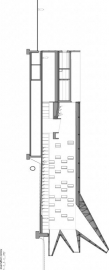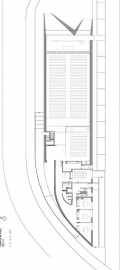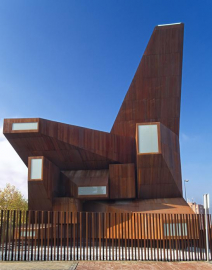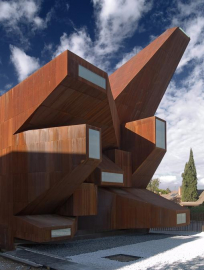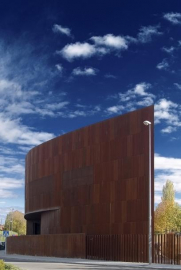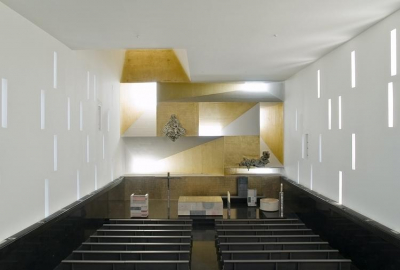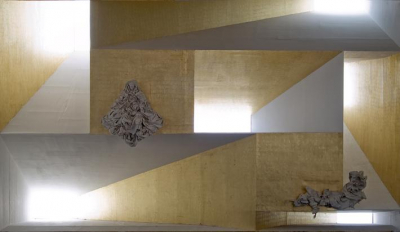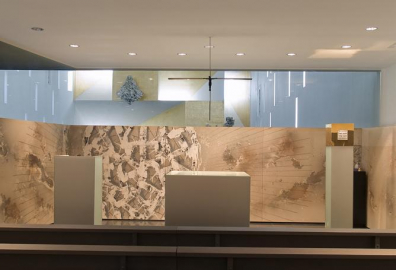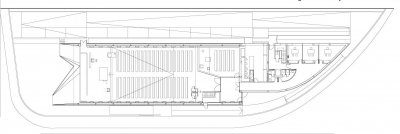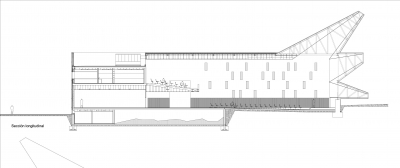Santa Mónica Parish Center in Rivas-Vaciamadrid
The Church of Santa Monica at Rivas Vaciamadrid is located in a longitudinal plot of a newly established residential area and although the church has been the last work of the area, it was the first to be designed. The church needed to have a longitudinal scheme because it had to occupy the maximum plot and capacity; it also required a directional pattern even if it was not the most liturgically desired. The program besides needing a parish church, it was also considered necessary to have areas for management and catechesis and two housing projects for priests. Evidently the buget was tight but the end product came out to be a long lasting structure.
All the early conditions given allowed for the emergence of the main idea and bring forth answers to all questions asked; turning limitations into great opportunities.
The shape of the scheme determined the plans performance by allowing the work to be born from the edge, from point zero and along its border ends in an explosion of north-facing skylights. The sonorous piece shows a clear and categorical uniqueness of the building appropriate for the subject of holiness; to meet the light in where its essence is lacked of. As a result the re-interpretation of the history of long altarpieces is now to search ways in which to unite earth and sky, matter and light, the summit of the sacred. The trap formed by the skylights is lights special gift given to matter, so when both come into contact, matter infinitely disappears. In the encounter, the limit, the border is blurred by eliminating matters existence and it becoming too light.
This box of light is disclosed at the sacrum meeting, which is stored in a flake-cut steel skin so unique that expresses the art worn with the passage of time. The white interior is supported by a horizon line that separates the polished black granite base along the pavement. This evocative contrast allows you to enter all the needs of the facilities in dense black and whiteness, leaving it wounded only by crack of light.
The sacred space desires of sacred art to fill the room, so all the sculptures and liturgical furnishings were designed and created by contemporary artists such as José Luis Sánchez, Javier Viver, José Manuel Cirino, Fernando Pagola, Javier Martinez and Jose Antonio Ramos.

